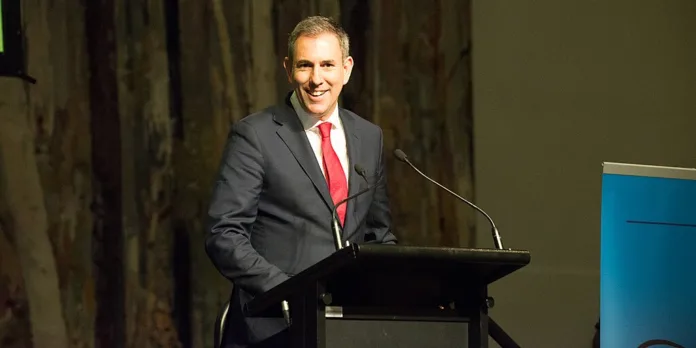Treasurer Jim Chalmers and Prime Minister Anthony Albanese review Productivity Commission’s roadmap for universal childcare
The federal government is currently assessing a set of ambitious recommendations aimed at overhauling Australia’s childcare system. The Productivity Commission has presented a comprehensive “roadmap” for creating a universal childcare system, which was delivered to the government on Wednesday.
Treasurer Jim Chalmers described the report as a “really important piece of work” and acknowledged the significance of its recommendations. The proposed changes include ensuring that all children aged 0-5 have access to early childhood education and care for at least three days per week, for 48 weeks of the year.
Chalmers noted that the government is already working on increasing pay for early childhood educators, acknowledging their need for a pay rise. He emphasized the importance of early childhood education, not only for families but also for the broader economy.
Embed from Getty ImagesAmong the key recommendations is the proposal to make childcare free for families earning less than $80,000 per year. Additionally, the commission has suggested abolishing the activity test, which currently determines the level of childcare subsidy based on parents’ commitments. The test has been criticized as a barrier for low-income families and an impediment to workforce participation.
Prime Minister Anthony Albanese, while affirming that the government will carefully review the Productivity Commission’s suggestions, indicated that decisions will be made based on a combination of the commission’s advice and the government’s own policy considerations. Albanese reaffirmed the government’s commitment to making childcare more affordable, with a potential plan to introduce a 90% subsidy for all families still under consideration.
Analysis:
Political:
The government’s response to the Productivity Commission’s recommendations reflects a commitment to addressing childcare affordability, a key issue for many Australian families. This move is likely to influence public opinion positively and strengthen the government’s position on family and social policies.
Economic:
Implementing universal childcare could significantly impact the economy by enhancing workforce participation and supporting early childhood development. The proposed reforms are aimed at reducing financial barriers and improving access to childcare services.
Social:
The proposed changes have the potential to greatly benefit families, particularly those with lower incomes, by providing more accessible and affordable childcare options. Removing barriers like the activity test could also encourage greater workforce participation among parents.
Policy:
The recommendations align with broader goals of increasing equity and supporting early childhood education. The government’s careful review of these recommendations suggests a strategic approach to policy implementation, balancing expert advice with existing commitments.
Geopolitical:
While the reforms are primarily a domestic issue, improving social services like childcare can enhance Australia’s reputation for supporting families and equality, potentially influencing international perceptions of the country’s social policies.
